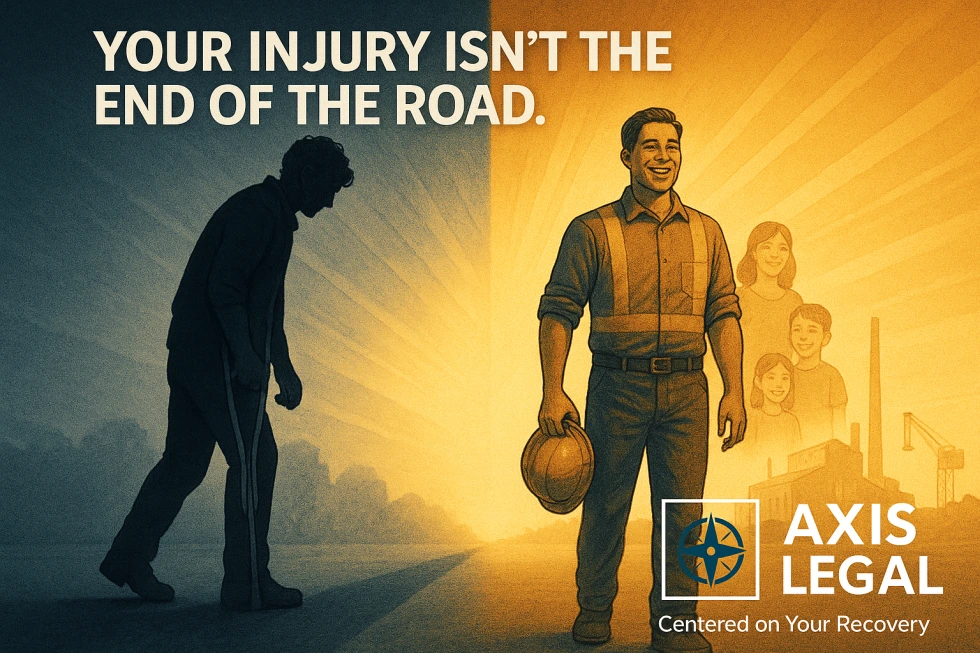If you’ve been approved for Social Security Disability Insurance (SSDI) while also receiving Wisconsin workers’ compensation, it’s important to understand how the two systems interact. Wisconsin is a reverse offset state, meaning your SSDI benefits are protected—but your work comp settlement may be reduced.
Here’s what you need to know about the SSDI and Wisconsin workers’ compensation offset rules—and how proper legal strategy can help maximize your total recovery.
What Is a Reverse Offset in Wisconsin?
In most states, when an injured worker qualifies for SSDI and workers’ compensation at the same time, the Social Security Administration (SSA) reduces the SSDI benefit to keep combined income below 80% of the worker’s average pre-injury earnings—known as the 80% Average Current Earnings (ACE) rule.
But in Wisconsin, the rule works in reverse.
👉 In a reverse offset state like Wisconsin:
- SSDI benefits are not reduced.
- Your workers’ comp benefits are reduced so that SSDI + WC does not exceed 80% of your prior earnings.
This means the reduction comes from the workers’ comp insurer, not from Social Security.

Wisconsin Work Comp Attorneys
Example of the 80% ACE Rule in Wisconsin
Let’s say your ACE (average current earnings) is $4,000/month.
80% of that is $3,200.
- Your SSDI check is $2,000/month.
- That means the most your work comp benefits can be is $1,200/month.
- The insurer applies a reverse offset by reducing what they owe you in work comp.
This rule ensures you don’t receive more in disability benefits than you earned before—but it also gives insurers a way to reduce what they pay, affecting both weekly benefits and settlement value.

How SSDI affects Wisconsin workers’ comp benefits – Axis Legal”
How the Reverse Offset Affects Work Comp Settlements
If you’re receiving SSDI and pursuing a workers’ compensation settlement in Wisconsin, insurers often argue that a portion of your settlement would be offset due to SSDI. This can result in:
- Lower settlement offers
- Misleading valuation of future benefits
- Insurers underpaying what’s truly owed
However, with proper planning, the reverse offset can be managed and mitigated. Wisconsin attorneys experienced in both SSDI and workers’ compensation law can structure settlements to protect your full value.
Can You Minimize the SSDI Impact on Your Work Comp Case?
Yes. Here’s how we help our clients do that:
✅ Life Expectancy Spreading: When settling a claim, we can allocate the lump sum over your life expectancy to reduce how the offset is calculated. This doesn’t reduce your total settlement—it changes how it’s treated for SSDI purposes.
✅ Custom Offset Language: We draft settlement agreements that comply with SSA guidelines while reducing the monthly impact on your benefits.
✅ Challenge Excessive Insurer Reductions: We review the carrier’s offset calculations and challenge any attempt to undervalue the settlement beyond what the law permits.
Why Work With a Wisconsin Workers’ Compensation Attorney for SSDI and Wisconsin workers’ compensation?
Navigating SSDI and Wisconsin workers’ compensation together requires deep knowledge of both systems. At Axis Legal, we’ve handled hundreds of overlapping claims and know how to:
- Maximize total recovery across both programs
- Avoid costly errors in settlement structuring
- Communicate with SSA and insurers to enforce your rights

How SSDI affects Wisconsin workers’ comp benefits – Axis Legal”
Take Control of Your Recovery Regardding SSDI and Wisconsin workers’ compensation
Don’t let an insurance carrier undervalue your case because of your SSDI approval. We’re here to protect your benefits, maximize your settlement, and keep you informed every step of the way.
📍 Based in Milwaukee, representing injured workers statewide.
📧 info@theaxislegal.com
📞 414-414-4814
🌐 https://theaxislegal.com

